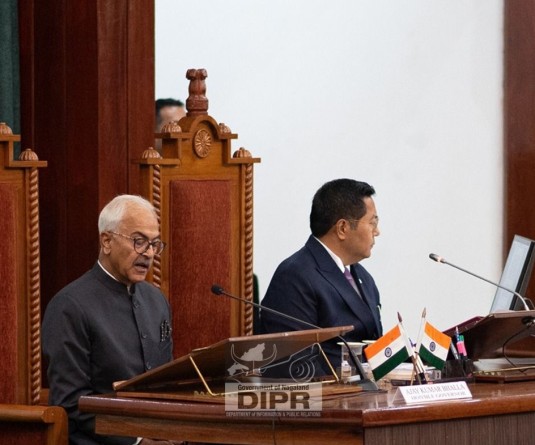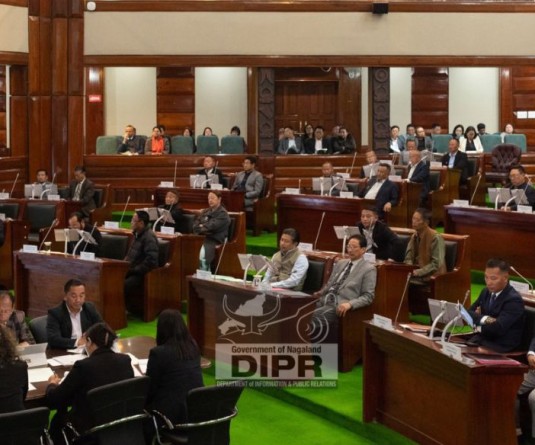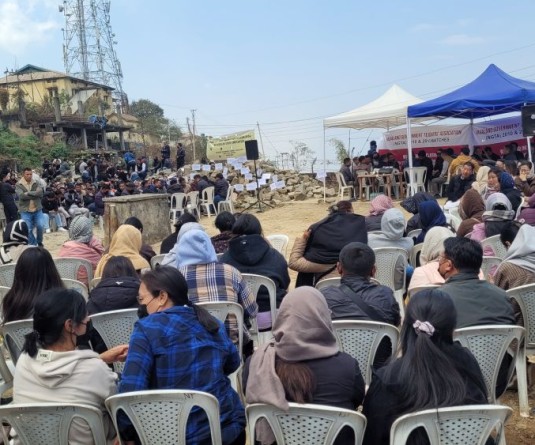A section of the gathering attending the awareness programme organised by Rotary Club of Kohima, in collaboration with G Rio School, Kohima.

Kohima, October 8 (MExN): The Rotary Club of Kohima, in collaboration with G Rio School, Kohima organised one-day programme to create awareness on drug abuse and peddling on October 7. The event drew the participation of approximately 550 students from five schools spanning classes 8 to 12, making a significant impact in the fight against drug-related issues, stated a press note.
Nagaland State Commission for Women (NSCW), Chairperson, Nginyeih Konyak shed light on the current scenario of drug abuse and peddling within Naga society. She emphasised the harrowing fact that traffickers often exploit vulnerable segments of society, particularly the youth and those facing economic hardships, including widows and marginalized women, to facilitate drug trafficking.
MLA Dr Tseilhoutuo (Ato) Rhutso delivered a discourse on ‘drug abuse and its adverse effects on health.’ He expounded on the distinction between beneficial and harmful drugs, underscoring the grave consequences of continued drug abuse, which can ultimately lead to liver failure (Cirrhosis). Dr Rhutso called upon all attendees to actively raise awareness, offer support, and nurture a society where individuals can lead healthier lives.
Imnalensa, IPS, DIGP (Training) Chümoukedima, delved into the realm of drug peddling and its repercussions. He highlighted the existence of the Narcotic Drugs Psychotropic Substances (NDPS) Act enacted in 1985, designed to combat drug trafficking comprehensively. The Act aims to prohibit all aspects of drug trafficking, from cultivation and manufacturing to transportation, storage, sale, and purchase. Imnalensa explained the Act’s categorization of drug offenses into three levels based on the quantity of drugs involved: small quantity, less than commercial quantity, and commercial quantity.
He emphasised that individuals engaging in drug-related activities not only face legal consequences but also jeopardize their ability to fulfill their social responsibilities.






